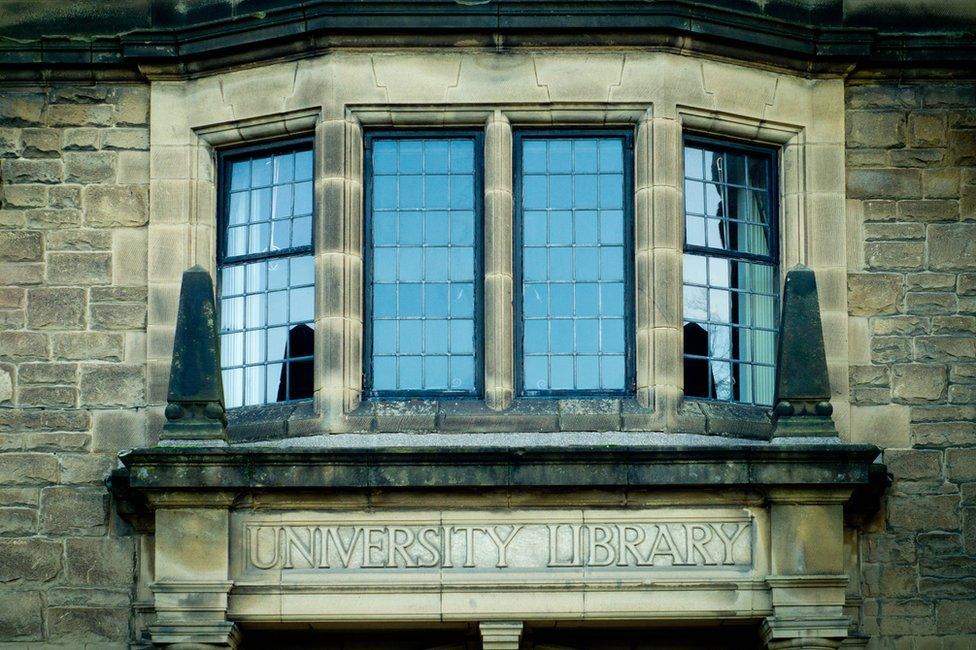LGBT students attacked in university Zoom meeting
- Published

Durham University says such behaviour "will not be tolerated"
Students have been left feeling "threatened" and unsafe after a LGBT university association Zoom meeting was "hijacked" by more than 15 people shouting "homophobic slurs".
The online meeting at Durham University was disrupted with loud music, shouted abuse and "sexually explicit videos", say LGBT groups at the university.
The event was for new students who are already facing Covid restrictions.
Durham University said such behaviour "will not be tolerated".
"To hijack an event like this in such an aggressive and targeted way is nothing less than a hate crime," said a statement from LGBT groups at the university, including St Mary's College, where the incident took place earlier this month.
'Toxic culture'
The anonymous attackers were able to join the Zoom meeting through an address shared within the college for the welcoming event.
Such "malicious behaviour" was even worse when the pandemic made it difficult for students to meet in person and support each other, said the LGBT associations' statement.
"The fact that this was not simply an individual acting alone, but rather a co-ordinated attack from a number of people, is a reminder of how routinely unsafe and unwelcome our community is made to feel," said the LGBT groups, which warned of a "toxic culture" at the university.
Earlier this week, the Guardian reported on claims that students at Durham were being bullied and and coming from poorer backgrounds.
Last month, Durham University condemned what it called "utterly abhorrent" comments on social media by students set to start at the university.
It included references to competing to have sex with "the poorest girl".
Sam Dale, the university's director of student support and wellbeing, said the university knew of the "Zoom bombing" and how it had left participants feeling "distressed".
"Such behaviour is not acceptable at Durham University and will not be tolerated. Incidents will be reported to the police.Â
"Every member of the university is expected to treat others with respect and tolerance so that every member of our community can live, study and work in a safe and inclusive environment," said Mr Dale.
- Published15 October 2020